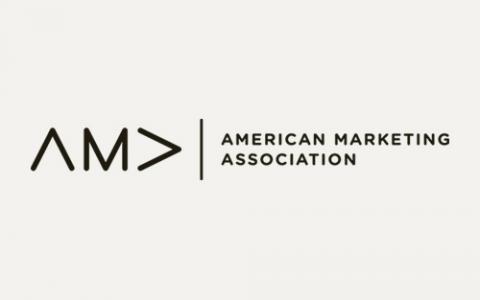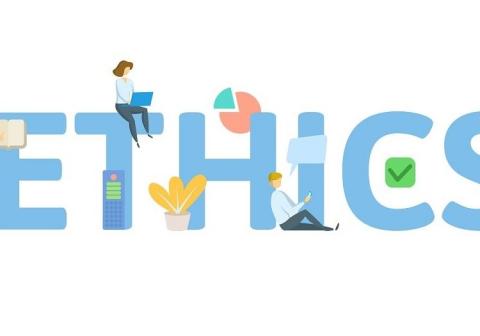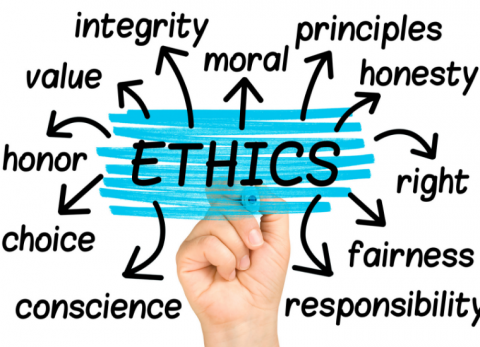+1(209) 348-9544
order@myessayservices.com
+1(209) 348-9544
order@myessayservices.com
![]() Are you an under-graduate, in College, Bachelors or under-taking your Post graduate studies and need someone to help write your essay or research? We offer premium quality essay writing help. All our papers are original, 0% plagiarized & uniquely written by our dedicated Masters specialists. My Essay Services is an experienced service with over 9 years experience in research writing of over 97,000 essays over the years. You will receive a plagiarism check certificate that confirms originality for any essay you order with My Essay Services. Fill the calculator on your right to begin placing your order now!
Are you an under-graduate, in College, Bachelors or under-taking your Post graduate studies and need someone to help write your essay or research? We offer premium quality essay writing help. All our papers are original, 0% plagiarized & uniquely written by our dedicated Masters specialists. My Essay Services is an experienced service with over 9 years experience in research writing of over 97,000 essays over the years. You will receive a plagiarism check certificate that confirms originality for any essay you order with My Essay Services. Fill the calculator on your right to begin placing your order now!

 According to American Marketing Association (2016), the organization is committed to the highest standards. They promote professional ethical norms and values for its members, who are students, academicians, and practitioners. The Statement of Ethics focuses on moral standards that are expected of an individual. Norms are the standard behaviors that individual are supposed to maintain and portray in their professional work.
According to American Marketing Association (2016), the organization is committed to the highest standards. They promote professional ethical norms and values for its members, who are students, academicians, and practitioners. The Statement of Ethics focuses on moral standards that are expected of an individual. Norms are the standard behaviors that individual are supposed to maintain and portray in their professional work.
On the other hand, values represent acceptable behaviors by society as a whole, which are considered morally correct. The American Marketing Association prescribes for values that represent commonly accepted conducts of its members. According to AMA (2016), their members (marketers, students, and practitioners), are required to act as 'stewards of society' in their daily operations. Their ethical statement acknowledged the need for marketers to work as examples when it comes to ethical practices. Ethics is a subject that spans to all fields of practice, norms and values not only affect operations but influence every step of business. Companies have implemented various forms of ethical texts that prescribe to their fields of operation.
In line with ethical practice, companies have shifted to the integration of Corporate Social Marketing strategies as part of their business plans. According to Caramela (2016), there are four basic reasons for the shift towards Corporate Social responsibility (CSR); thus, environmental factors, philanthropy, ethical issues, and volunteering. Starbucks with its C.A.F.E project is an example of a Corporate Social Marketing technique that has been used to ensure sustainability of the coffee industry. Tom’s Shoes CSR is notable among other companies. CSR is used by companies has a tool for its ethical and moral manifestos. Notably the issue of CSR has a marketing technique has picked pace with the growing awareness and social connectivity across the globe.
References
American Marketing Association. (2016). Statement of Ethics.-Ama.org.
Caramela, S. (2016). What is Corporate Social Responsibility?. Business News Daily.
 Ethics refers to what is defined as correct conduct within a society or business organization. In each organization group or state, there are rules that define what is expected from the members regardless of their rank or experience. Ethics is not limited to the actions of a single person but the entire Corporation, government or society (Ward, 2009). Regardless of the nature of the organization ethics seek to establish a well-reasoned behavior that does not compromise some members of the group. Having understood the concept on ethics, this paper seeks to prove the notion that ethics is not static; they may change with time.
Ethics refers to what is defined as correct conduct within a society or business organization. In each organization group or state, there are rules that define what is expected from the members regardless of their rank or experience. Ethics is not limited to the actions of a single person but the entire Corporation, government or society (Ward, 2009). Regardless of the nature of the organization ethics seek to establish a well-reasoned behavior that does not compromise some members of the group. Having understood the concept on ethics, this paper seeks to prove the notion that ethics is not static; they may change with time.
In most cases, ethics is defined set of rules that like most likely appear to be self-righteous moralizing. The rules might be static, but ethics is not bound to asset of rule (Ward, 2009). Rules are there to provide guidance or the basis on which certain decisions should be made. Additionally, interpretations to certain principles change with time and circumstances. The interpretation given to a particular principle 50 years ago is different to one that might be used today.
Also interpretation of principles and rules varies with location. This means that what is ethical in one region may be unethical in another. With the dawn of civilization, some rules that were thought to be ethical in the past have been scraped off from the list. This is a result of new information and discovery concerning what are right and what is wrong. Some of the old believes may have been based on meaningless assumptions making them unfit to define ethics (Ward, 2009). From the discussion, it is clear that ethics does change with time and place since the circumstances are also subject to change given the same factors.
References
Ward, S.J. (2009). Approaches to ethics. Retrieves on 15th December 2014 from: http://www.journalismethics.info/research_ethics/index.htm
 Rules are common phenomena among people. In most cases, people are lured to believe that everything stated in the rules is correct. They also tend to assume that as long as the action is not illegal, it is probably ethical. However, this is not true since ethics cannot be contained within the limits of the law or a set of rules (Jones & George, 2012). The following essay seeks to explain the reasons behind the notion that not everything that is legal falls within ethical behavior.
Rules are common phenomena among people. In most cases, people are lured to believe that everything stated in the rules is correct. They also tend to assume that as long as the action is not illegal, it is probably ethical. However, this is not true since ethics cannot be contained within the limits of the law or a set of rules (Jones & George, 2012). The following essay seeks to explain the reasons behind the notion that not everything that is legal falls within ethical behavior.
There is a general relationship between ethics and the law which is the main reasons that make people think that everything that is legal is automatically ethical. However, ethics is controlled by several aspects that help in determining what action is correct under certain circumstances. Of course, there are some rules within the law that may be termed as ethical but some of them are unethical given circumstances (Jones & George, 2012).
The law is defined to stop certain behavior or actions that are aimed at making people’s lives better. For instance, the law of food labeling aims at protecting citizens from poisoning or consumption of harmful substances. However, if a new toxin is introduced and it is not quoted in the law, then people are exposed to the one thing that the law was designed to protect them from. Selling food that contains toxic substances is unethical whether the law accepts it or not (Jones & George, 2012). As a result, ethics and ethical behavior are not bound within the legal statutes. The law only contributes to a small percentage of what is ethical. In simpler terms, the law is just a frame-work that guides people on what is right or wrong, but does not draw a line between what is ethical or unethical.
References
Jones.R.G & George, M J. (2012). Contemporary management: Ethics and social responsibility. PPT
Ethics refer to the moral principles that govern the behavior of an individual or a group. Ethics can also refer to a branch of knowledge that relates to moral principles. One question that most people ask is it possible to teach ethics? Well, surprising enough it is possible to teach ethics to individuals and be completely successful. It is a hundred percent possible to cover ethics in a school curriculum, but it takes a good teacher to do that. The main focus is not whether ethical and professional behavior can be taught, but if the students can learn. Another question is what effect the lessons would have on the students (Elliott 2007). Therefore, the answer of whether ethics can be taught really depends on the methods of the individual teaching. Learning about ethics may be as confusing to a student as is learning a new subject. Teaching students the rules and standards of how they are expected of behave in certain environments can end up being very confusing.
Considering that most students will be old enough to figure out what is expected in them in the environments. Learning about ethics can not only be learnt in the school environment but is currently taking place in most working places. When new employees register at a place of work, the management makes the new employees go through a training program in most cases. This can be considered as a lesson of ethics since the individuals learn about the expected behavior of the company or firm they are working for, depending on their work position. Therefore, for the new employees they need to attend the lessons in order to impress in their job positions and make sure that they are not sacked (Elliott 2007). In conclusion, ethics is the knowledge of what an individual is expected to do and what they are not expected to. Therefore, this information like any other subject can be taught at an education level, in general. However, when ethics is taught at companies and firms, it is more direct and less general.
References
Elliott, D. (2007). Ethics in the first person: A guide to teaching and learning practical ethics. Lanham, Md: Rowman & Littlefield Publishers.
Browse More Essay Topics 24/7/365 Support 11+ Yrs in Essay Writing Pay for Quality not Quantity Score that A+ Grade
Affordable Papers
Research Paper for Sale
Cheap Research Papers
Buy Term Papers
Buy Research Paper
Write My Paper
Buy an Essay
Cheap Essay Writer
Write my Essay
Thesis Help
Dissertation Help
Paper Writing Service
Pay for Homework
Pay for Research Paper
Do My Essay for Me
Pay for Essay
College Papers for Sale
Do My Homework for Me
College Essays for Sale
Buy Research Papers Online
Buy College paper
Client: "(Berlin, G.K., CA)"
Topic title:"Leadership shortfalls in Blue Chips"
Discipline: "Economics"
Pages: 5, (APA)
" Awesome, the writer delivered it as required by the professor. They also sent me a plagiarism & grammar report Wow!. I was worried about how the essay would turn up but this is exactly what wanted. Thank you and will be back with a longer essay"
Accounting Research Papers
Business Research Papers
Communication Research Papers
Computer Science Research Papers
Economic Research Papers
Film Studies Research Papers
Finance Research Papers
Geography Research Papers
History Essays
Psychology Research Papers
Political Science Research Papers
Nursing Research Papers
Mathematics Essays
Management Essays
Literature Essays
Law Essays
World Affairs Essays
Technology Essays
Sociology Essays
Science Essays
Religion Essays
+1(209) 348-9544
Terms
Privacy
Sitemap
Frequently Asked Questions
0% Plagiarism Guarantee
Money Back Guarantee
Revision Policy
